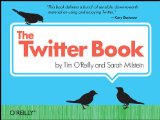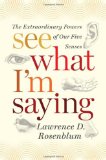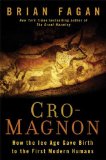links from ‘The Twitter Book’
March 12, 2010
I’ve just recently started using Twitter, so naturally turned to some books to help me get up to speed. 
The Twitter Book by Tim O’Reilly and Sarah Milstein (link for UK) seems to have just the right amount of information & tips to help “Twitter novitiates,” as they say (p. 123), get started.
Here are links to the sites mentioned in the book –
authors on Twitter – @timoreilly, @SarahM
hashtag for the book – #TwitterBook
140 characters? – 140it
shorten urls – Bit.ly (tracks clickthroughs),Is.gd, Twi.bz
hashtags – Hashtags.org – popular hashtags & usage stats, Tagalus, What the Trend
tweetup – Twtvite
help – Twitter help pages, Get Satisfaction
trends – What the Trend, follow @TweetingTrends, TwitScoop, Twopular
Twitter’s advanced search , for older tweets try Google search with site:twitter.com
TweetGrid, Monitter – monitor several topics at once in real time
TweetBeep – email search results hourly or daily
BackTweets – search for links to domain or specific webpage
popular links – Twitt(url)y, TweetMeme, MicroPlaza
third-party Twitter clients – PeopleBrowsr, Twhirl, TweetDeck
mobile clients – Twitter mobile, iPhone: Twitterific, Tweetie, BlackBerry: TwitterBerry, TinyTwitter
who to follow – We Follow, Twellow, Mr Tweet, Who Should I Follow?
who’s influential –Twitterholic, Retweetist, Retweet Radar, TwitterCounter, Twitalyzer
Q & A – TweetBrain
group chat – TweetGrid, TweetChat
followers – Twimailer, DoesFollow, FriendOrFollow, Twittersheep tag cloud, TweepDiff
posting pictures – TwitPic
preschedule messages – TweetLater, RSS feed TwitterFeed
fundraising – Charity: water, TipJoy
#FollowFriday – find cool people to follow (or recommend)
background – TwitterGallery, TwitBacks
business use – TrackingTwitter, Twibs, ExecTweets
internal micromessaging – Yammer, Present.ly
track your tweet stats – TweetStats
track click-throughs with URL shorteners – Bit.ly, Tr.im, Cli.gs
TweetReach – shows how many people may have seen a post





